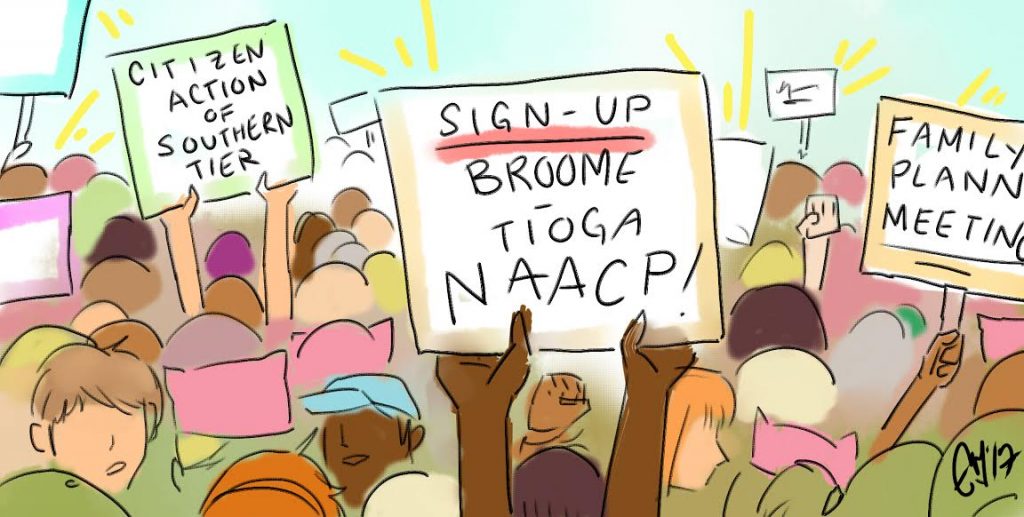Loud chants rang as cardboard signs and pink knitted “Pussyhats” flowed throughout the streets of the District of Columbia on Saturday. Many BU students joined the ranks at our nation’s capital, at a sister march in Downtown Binghamton and at other sister marches around the world.
In the District of Columbia, Binghamton University students joined marchers from all around the country. Representing BU, they found connections with alumni and New Yorkers while chanting for change alongside hundreds of thousands of strangers, all united around a mission to move the nation forward.
For those that marched locally, Saturday’s event transcended the University bubble in which activism often occurs. Students walked alongside people of all ages rallying for the causes they believe in, which varied from person to person. While student organizations tend to practice activism on campus, this march pulled students into a much broader context.
In New York City, Washington, D.C. and other cities big and small across the United States, student protesters found strength in massive numbers. In Binghamton, the experience brought local residents, students and advocacy organizations together on a scale that was much larger than expected. It united voices that might not have found each other otherwise, bridging the gap that usually divides Binghamton activism from BU activism — if only for three hours.
This collaboration could not have come at a better time. The protests provided a visual representation of people who support each other in their differences and stand together in a fight for equality. They provided solidarity and support, but also were a call to action. Most importantly, it sent a political message that people are willing to stand together to defend the rights they value.
However, marches alone do not create progress. While clever signs and megaphones strategically placed in front of government buildings certainly make a statement, they do little to change the laws that directly impact peoples’ lives. It is what happens after the march that makes a difference.
If you were inspired by the events on Saturday, then it is your duty to keep marching. Don’t let the message die down by not following up. In Binghamton, a speaker asked participants to take out their cell phones and add the office number of Fred Akshar, a Republican New York state Senator, in order to call him and advocate for women’s reproductive rights.
If you feel passionate about that issue, make that call. In the District of Columbia, students pledged to bring their fight home with them — when looking to create change, go local and get involved. Choose any one of the issues brought up at the march: reproductive rights, immigration reform, refugee aid and nuclear proliferation among others, and pay attention. There is and will be action you can take if you truly care about doing so.
If you made the decision to attend a march on Saturday, don’t lose sight of what brought you there — even when the roads are clear and the crowds are gone, don’t stop marching.



